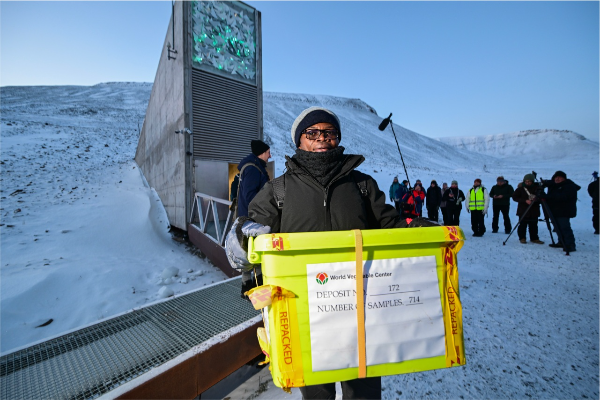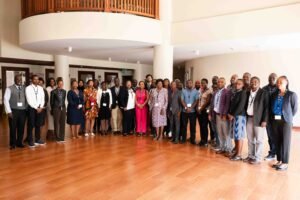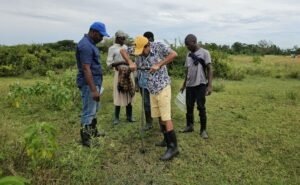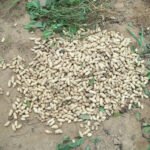By Panagrimedia Correspondent, October 27, 2025, The Africa’s Vegetable Genebank (AVG) has achieved a major milestone in biodiversity conservation by depositing more than 3,000 seed samples—representing 109 crop species collected from over 30 African countries—into the Svalbard Global Seed Vault in Norway.
The collection includes crops such as amaranth, jute mallow, the Bambara groundnut, African eggplant and okra—vegetables that are increasingly recognised for their capacity to diversify diets, bolster local economies and help farms adapt to climate change. Many of these “opportunity crops” had been disappearing from African farms as imported staples have displaced them.
Hosted by World Vegetable Center (WorldVeg) in Arusha, Tanzania, the Africa’s Vegetable Genebank benefits from support from the Norwegian Agency for Development Cooperation (Norad), the Global Crop Diversity Trust (Crop Trust) and the Food and Agriculture Organization of the United Nations (FAO) under the International Treaty on Plant Genetic Resources for Food and Agriculture (ITPGRFA).
Dr Sognigbe N’Danikou, head of the genebank and a scientist specialising in traditional African vegetables at WorldVeg, emphasised the importance of the deposit: “Each seed carries generations of farmer wisdom, adaptation, and cultural value. Backing them up in Svalbard lays a strong foundation for Africa’s food security and resilience – ensuring we can continue to nourish generations to come.”
With this recent deposit, more than half of the genebank’s approximately 10,500 accessions are now backed up at the Svalbard Seed Vault—ensuring these resources remain secure and recoverable even amid climate extremes, conflict or natural disasters.
Beyond conservation for the future, the genebank emphasises active use of its collections. Many of the seeds already deposited have been distributed to farmers, schools and researchers across Africa. For instance, the AVG has provided emergency seed kits to displaced farmers in Sudan, and to communities in Uganda, Kenya, Benin and Somalia. In Eswatini, its seeds have supported household gardens and school-feeding programmes.
Projects such as citizen-science trials under the Crop Trust’s BOLDER initiative are using amaranth and jute mallow from the genebank in Tanzania and Benin respectively, enabling breeders and farmers to identify promising varieties for improvement.
Daniel Frans van Gilst, Senior Agriculture Adviser at Norad, said the strength of the genebank lies not only in conserving biodiversity but in putting it to work: “Its strength lies in both conserving biodiversity and putting it to work – enabling farmers and researchers to plant, study, and improve crops that build more resilient farms, healthier diets, and stronger livelihoods.”
Dr Stefan Schmitz, Executive Director of the Crop Trust, added that the deposit is a “powerful reminder of how global cooperation can safeguard the foundations of our food systems.” Backing up Africa’s vegetable diversity in the Svalbard Vault means these invaluable crops—which are vital for nutrition, livelihoods and resilience—will remain available for generations.
In sum, Africa’s Vegetable Genebank’s record deposit marks a key step towards protecting and leveraging the continent’s rich vegetable heritage. By conserving traditional African vegetables in a global repository and enabling their active use, the initiative strengthens food security, nutrition, and farming resilience across Africa.







